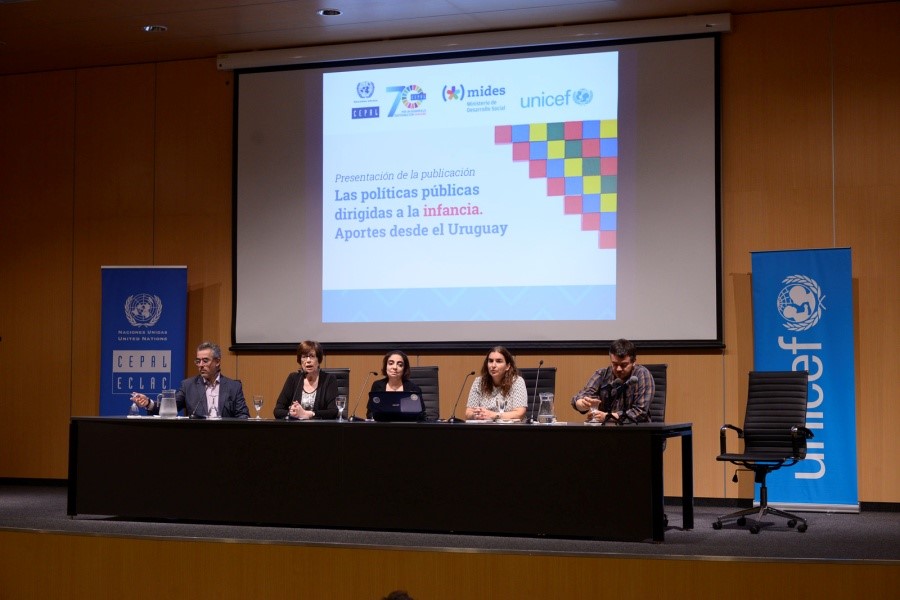New Study Addressing Uruguay’s Public Policies for Childhood is Presented
Work area(s)
Topic(s)
The publication was edited jointly by ECLAC, UNICEF and the country’s Ministry of Social Development.

The publication Public Policies Aimed at Childhood: Contributions from Uruguay was presented at a seminar held on November 12, 2018. The study arose from collaboration between Uruguay’s Ministry of Social Development (MIDES, through the National Office for Evaluation and Monitoring), ECLAC’s Office in Montevideo and the United Nations Children’s Fund (UNICEF), and it reflects these institutions’ efforts to contribute elements of interest for public policy design.
The seminar was led by Uruguay’s Minister of Social Development, Marina Arismendi; the Director of ECLAC’s Office in Montevideo, Verónica Amarante; and UNICEF’s national representative, Luz Ángela Melo.
At the event’s main panel, a general presentation of the publication was made by Verónica Amarante (ECLAC) and Juan Pablo Labat (MIDES), who coordinated the report, with comments provided by Rodrigo Arim, Rector of the University of the Republic (Udelar). On the following panel, the authors of the various chapters presented their main findings, which were discussed by experts on this matter from academia, the government and UNICEF.
According to the document’s coordinators, there is consensus regarding the importance of guaranteeing economic resources for children and designing quality policies oriented toward them, to prevent restrictions on their development and foster the achievement of greater capacities. In the last decade, fiscal measures aimed at attaining this goal have been implemented in Uruguay.
The publication offers updated information regarding fiscal efforts focused on childhood, as well as their possible distributive effects. At the same time, it delves into aspects related to the determination of beneficiaries and the location of the services offered under two relatively recent and ambitious policies carried out in Uruguay: the Uruguay Grows with You (Uruguay Crece Contigo) proximity program and the National Care System’s component geared toward childhood.
The study also includes exercises on the targeting of specific programs and the criteria for expanding public offerings, with the goal of showing the progress made in terms of developing timely and quality information, and its potential for the development of public policies that are more efficient and of higher quality.
Related content
Subregional headquarter(s) and office(s)
Type
Country(ies)
-
Uruguay
Related link(s)
Related project(s)
Contact
Public Information Unit
- prensa@cepal.org
- (56 2) 2210 2040